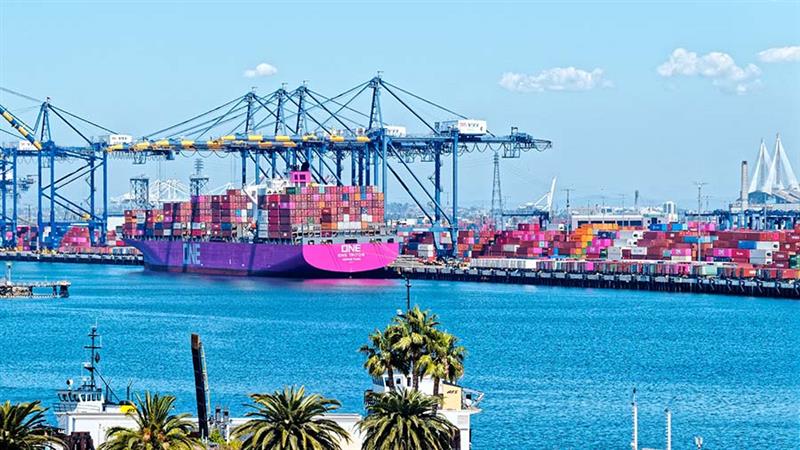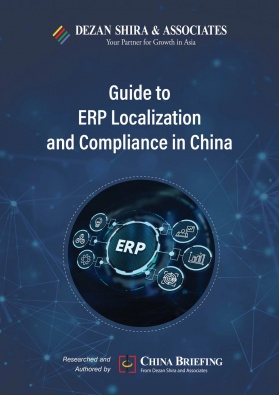European Business in China: Insights From the EU Chamber’s Position Paper 2024/2025
In our overview of the EU Chamber’s European Business in China Position Paper 2024/2025, we delve into the key challenges European businesses face amid China’s slow economic recovery and regulatory uncertainties. The Position Paper highlights significant issues, including economic slowdown, overcapacity, and regulatory compliance difficulties, while providing targeted recommendations for policy reform and enhanced bilateral cooperation. The report emphasizes the need for consistent policy implementation and clear regulatory guidelines, while advocating for proactive EU engagement and strategic adjustments by European companies to navigate the evolving market landscape effectively.
On September 11, 2024, the European Chamber released its annual European Business in China Position Paper 2024/2025 (the “Position Paper”), addressing the growing challenges faced by European companies operating in China.
Drawing on insights from over 1,700 member companies and 35 working groups, the Position Paper offers comprehensive recommendations to improve the business environment. It outlines the increasing difficulties European companies are encountering and proposes key areas for policy reform.
In the foreword, Jens Eskelund, President of the EU Chamber, poses a critical question about the future relationship China seeks to have with foreign enterprises. Although positive signals have emerged, such as the State Council’s August 2023 Opinions on Improving the Foreign Investment Environment (the “Opinions”), substantial progress on core business concerns has been slow. The Position Paper emphasizes that without meaningful reforms, restoring business confidence will be a significant challenge.
While European companies remain invested in China’s success, the growing risks associated with operating in the country are making it increasingly difficult to justify further investments.
Below we explore the key challenges European companies face and the EU Chamber’s recommendations for making China a more attractive destination for European investors.
Challenges facing European business in China
Economic slowdown
In 2024, European companies are contending with a sluggish economic recovery in China. According to the Position Paper, China’s growth has hit historically low levels. The weaker-than-expected post-COVID rebound has significantly dampened business confidence, with the automotive sector, for example, experiencing reduced demand and slower sales compared to pre-pandemic times. This economic slowdown has made long-term investments and strategic planning more challenging.
Overcapacity and market distortion
China’s recent economic policies, including substantial investments in manufacturing and green technologies, have led to notable overcapacity. The Position Paper points to the solar panel industry as a prime example, where the surge in production has created a surplus that outstrips domestic demand.
European companies are encountering fierce competition from Chinese manufacturers, resulting in lower prices and squeezed profit margins. This issue extends beyond solar panels to other sectors like steel and electric vehicles (EVs), where European markets are also feeling the impact of price distortions and intensified competition.
Political and business interplay
The relationship between politics and business has grown increasingly complex for European firms in China. The Position Paper highlights how political and economic factors are shaping the business landscape.
Historical instances, such as the influx of Chinese photovoltaic cells impacting the European photovoltaic sector, demonstrate the potential risks. Today, similar challenges are emerging in green technologies, where China’s large production capacity is intensifying competition.
Geopolitical tensions, including the fallout from Russia’s conflict with Ukraine, further complicate the overall environment.
Regulatory compliance challenges
China’s evolving regulatory landscape, designed to safeguard national security, presents significant challenges for European companies. The Position Paper notes that new regulations, such as the Law on Guarding State Secrets, lack clear definitions, particularly regarding ‘work secrets.’ Similarly, the amended Anti-espionage Law and the Foreign Relations Law provide broad references to national security without specific guidelines. This regulatory ambiguity heightens compliance risks and may deter investment.
Companies in sensitive sectors like technology and telecommunications find it particularly difficult to navigate these unclear regulations.
Additionally, European firms must also contend with new EU regulations, such as the Corporate Sustainability Reporting Directive (CSRD) and the Corporate Sustainability Due Diligence Directive (CSDDD), adding another layer of complexity to their operations in China.
Key recommendations
The Position Paper highlights the need for meaningful progress beyond the introduction of new action plans. While the 2023 State Council’s Action Plan for Solidly Promoting High-level Opening Up and Attracting and Utilizing Foreign Investment (the “Action Plan”) is regarded as a step forward in this direction, it also raises questions about the effectiveness of previous plans and their implementation.
To ensure impactful progress, it is recommended that China focuses on executing existing plans with clear metrics and accountability practices.
Additionally, the recent emphasis on state-owned enterprises (SOEs) in policies, such as the 2024 Third Plenary Decision, suggests a potential overshadowing of the private sector. To foster a balanced economic environment, it is crucial to ensure that private enterprises, including foreign-invested ones, are not disadvantaged by preferential treatment given to SOEs. Promoting fair competition and reducing state intervention in market processes will help create a more equitable business environment.
The need for effective complaint and coordination mechanisms for foreign-invested enterprises is another area of focus. The current reliance on events like the Shanghai Government Dialogue is insufficient for addressing issues on demand. Establishing a permanent and accessible mechanism at provincial levels will enhance the resolution of problems involving multiple departments and policies.
Strengthening policy implementation and regulatory clarity
According to the Position Paper, to build back investor confidence, China must ensure that new policy packages aimed at attracting foreign investment are supported by detailed implementation guidelines and clear timetables.
For instance, when the Foreign Investment Law was first introduced in 2020, the effectiveness of this law was initially hampered by vague implementation details.
Additionally, establishing legislation to ensure a level playing field between foreign and domestic enterprises is crucial.
Ensuring consistency and transparency in policy
Avoiding erratic policy shifts is essential for maintaining business stability. For instance, while China’s introduction of the Personal Information Protection Law (PIPL) was a significant step forward in data protection, it also brought challenges for companies needing to quickly align with new compliance requirements.
A more balanced approach would involve providing reasonable transition periods before implementing or amending policies, similar to the EU’s GDPR regulations, which offered a two-year adjustment phase to assist businesses in meeting the new standards. Additionally, access to reliable data and business intelligence is crucial.
Australia’s transparent approach to updating foreign investment regulations, which includes public consultations and comprehensive guidelines, serves as a positive example, facilitating more informed investment decisions.
Enhancing audit and compliance measures
Allowing independent, third-party audits can help companies demonstrate compliance with global standards and enhance their credibility. For instance, multinational corporations operating in the EU benefit from rigorous third-party audits as part of the EU’s compliance requirements. This practice not only ensures adherence to standards but also builds trust with stakeholders.
Optimizing China’s cyber and data security schemes to facilitate rather than obstruct industry development is also essential.
Seizing the moment: Enhancing EU-China relations and economic reform
The Position Paper underscores the urgency for China to seize the present moment to foster significant improvements in its economic and trade relationships, particularly with the EU. Given the upcoming elections across Europe in 2024, there exists a potential opportunity for China to reset and enhance its overall relationship with the EU. Early and decisive action by China could positively influence the EU’s evolving ‘de-risking strategy,’ which remains under discussion and development within the European Commission and among member states.
Avoiding a trade war is crucial, especially as tensions arise from investigations and counter-investigations related to dumping practices. While recent tariffs on Chinese EVs by the EU have garnered media attention, their impact on the broader trade relationship is relatively contained. Chinese EVs represent a small fraction of overall EU-China trade, and the tariffs imposed are less severe compared to those by the US.
This situation leaves room for continued export opportunities and emphasizes the importance of dialogue and negotiation, which the European Commission has actively pursued. To repair investor confidence and accelerate economic recovery, China must focus on fully implementing the commitments outlined in both the Opinions and the Action Plan.
The path forward involves not only implementing existing pledges but also creating space for policymakers to explore necessary reforms and adapt strategies. This approach, which reflects a more flexible and responsive policymaking process, will be essential for navigating current challenges and achieving long-term progress.
Recommendations for the EU and European businesses in China
The Position Paper advocates a proactive stance for the EU in its engagement with China, emphasizing the importance of sustained collaboration and a united European approach. It suggests that the EU should continue to engage with China across a broad spectrum of issues, from climate change to sustainable development and WTO reform. This aligns with the European Commission’s strategy, which similarly calls for ongoing cooperation with China to address global challenges such as climate action, health, and food security.
A key recommendation is to deepen EU-China cooperation where interests overlap. By focusing on areas like climate change and international standard setting, the EU can build on shared priorities to foster stronger ties. The Position Paper also stresses the need for enhanced coordination between EU member states and institutions to ensure a cohesive approach. This collaborative effort will be vital in navigating the complex landscape of EU-China relations and addressing emerging challenges.
On the business front, the Position Paper provides several recommendations for European companies operating in China. It advises maintaining robust communication between company headquarters and local operations to ensure that strategic decisions are informed by accurate, on-the-ground information. Developing in-house capabilities to anticipate legislative changes and political risks is also crucial. Companies should be prepared for potential shifts in market conditions and regulatory landscapes by conducting detailed supply chain reviews and risk assessments.
Furthermore, European businesses are encouraged to engage with chambers of commerce, think tanks, and industry organizations to stay informed about on-the-ground realities and policy developments. This engagement will help in formulating strategies that align with both EU policies and the local business environment in China.
In addition, companies should prepare for emerging global regulations and assess their exposure to potential sanctions. Integrating diverse teams, including both foreign and local staff, will help in maintaining a well-rounded perspective and avoiding talent silos. Investing in government advocacy through industry associations and standard-setting bodies is also recommended to address key concerns and opportunities related to risk management.
Dezan Shira & Associates’ Presence in Europe
Europe has significant trade and investment dealings with Asia—China, ASEAN, and India—are all among the bloc’s top trade partners. With Asia emerging as a growth engine of the world economy and an area of stability amid global volatility, there is a wealth of opportunities for European investors in the region. Incorporated in Munich in January of 2021, Dezan Shira & Associates’ European office under Riccardo Benussi serves as a first point of contact for European companies wishing to do business in Asia. Meanwhile, our Europe-based team in both the Munich and Milan offices works with a variety of partners to connect European businesses with developing Asian economies. To set up a call with our Europe-based team, please contact riccardo.benussi@dezshira.com.
About Us
China Briefing is one of five regional Asia Briefing publications, supported by Dezan Shira & Associates. For a complimentary subscription to China Briefing’s content products, please click here.
Dezan Shira & Associates assists foreign investors into China and has done so since 1992 through offices in Beijing, Tianjin, Dalian, Qingdao, Shanghai, Hangzhou, Ningbo, Suzhou, Guangzhou, Haikou, Zhongshan, Shenzhen, and Hong Kong. We also have offices in Vietnam, Indonesia, Singapore, United States, Germany, Italy, India, and Dubai (UAE) and partner firms assisting foreign investors in The Philippines, Malaysia, Thailand, Bangladesh, and Australia. For assistance in China, please contact the firm at china@dezshira.com or visit our website at www.dezshira.com.
- Previous Article Reducing Labor Costs in China with a Sustainable Workforce Structure
- Next Article China-Philippines Bilateral Relations: Trade and Investment


























